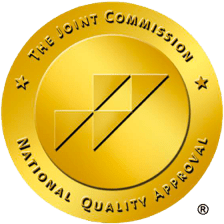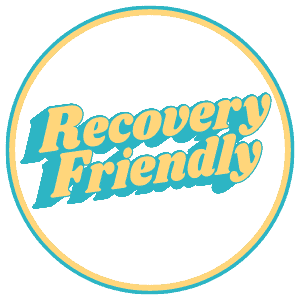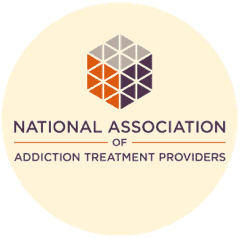Meth addiction can be managed once you choose to invite trained help like Next Step Recovery into your life.
Quitting meth use tends to be much harder when done alone. To achieve lasting progress, you’ll need help in treating the source of your substance use habits.
In this article, we’ll discuss what you might expect when battling meth addiction.
As we unpack meth abuse and recovery, we will answer common questions like:
- What is meth addiction?
- How does a meth user become addicted?
- What are the symptoms of meth use?
- How does meth addiction get treated in the continuum of care?
- What should I know before choosing a meth rehab program?
What is Meth Addiction?
Meth addiction is an impulsive dependency on the drug methamphetamine. This disease results from physical, mental, and emotional conditions that support drug use. Managing addiction with rehab and proven sobriety methods is the best way to reduce damage to your health and lifestyle. Meth addiction may be mistaken for the “crash” felt from just trying meth once. That said, the cycle of chasing a meth high can quickly become true addiction. You might have a meth addiction if you:- Binge on meth often to avoid feeling withdrawal sickness.
- Have sacrificed eating or sleeping to keep taking meth—sometimes for days.
- Are affected by hygiene issues like mouth sores or tooth decay.
- Feel your mood shift—from energized to agitated or depressed.
- Have been approached by work or loved ones about your wellbeing.
Difference Between Meth Use, Tolerance, Dependency, and Addiction
To understand meth addiction, you should know where it falls on the use spectrum. Meth use may involve one or multiple times of taking methamphetamine. This is simply the act of using the drug. Some get involved through social recreational use, while others use meth to escape from deeper issues. Meth tolerance explains how much of the drug you need to feel the desired effects. As you use more often, your tolerance increases and demands more use for the same effect. This becomes a cycle as increased use continues to raise your tolerance. Meth dependence is a condition that results from a high tolerance. It requires continued consumption of the drug to avoid confusing your body into a “sick” state. This sickness is known as withdrawal and can be incredibly painful to endure. Meth addiction is fed by drug dependence and the deeper issues that trigger the regular use of meth. Addiction is characterized by drug-seeking behaviors and negative long-term effects across your lifestyle. Meth use alone does not guarantee that you’ve become addicted. However, the risk of addiction makes even a single-use dangerous. Taking meth can be an easy gateway into repeated use, dependence, and eventual addiction. Once you are addicted, the physical dependency is hard enough to fight due to withdrawal. Even those that can overcome withdrawal tend to relapse eventually.Meth Addiction Care Explained
Breaking the cycle of addiction is best done with intervention from a care provider. If your life has been disrupted by this disease, you may have already tried to recover on your own. This can be an uphill battle as you try to fight your body and mind. It’s not uncommon to be discouraged by the process or feel hopeless due to relapses. As many people find out, addiction can not be defeated by willpower. Medical treatments and various therapies unearth the roots of your addiction to confront it in a lasting way. Embracing this care is an essential step to true recovery. Of course, choosing treatment only makes sense if you know why it will benefit you. It’s best to first understand exactly how your addiction may have formed.Why People Develop Meth Addiction
Meth addiction is typically influenced by deeper issues with your wellbeing. Meth itself is highly addictive since it produces an intense dopamine release. This dopamine “high” inflates further as you feel relief from underlying conditions. Among the many root causes of meth addiction, some can include: Social factors: Being around others that use meth may encourage or enable your own drug abuse. Your environment is influential in youth and as well as hood. Genetics: Risk of addictive behaviors can be passed down through the family as well. If you have relatives that have an addiction, you may be at a higher risk of one as well. Physical dependency: Meth can very quickly escalate your body into a state that requires the drug to feel normal. Naturally, this is a top concern around meth abuse. Co-occurring disorders: Untreated mental disorders are common with addictions to drugs like meth. Conditions like depression may trigger self-medication with drugs. Coping with stress: Even conditions like anxiety or mood disorders can lead to self-medicating. This temporary remedy can quickly escalate out of control. As you continue to use, conditions connect to create complex dependency on meth. Attempting to quit meth without treating these issues can easily lead to relapse. Professional diagnosis of addiction and all other concerns is essential to recovery.Common Symptoms of Meth Addiction
Clear signs of meth use. Whether you’re looking to help a loved one or determining if you have an addiction, there are signs that can help you. Symptoms are felt by the actual meth user in some of the following ways:- Physical: intense itching, high body temperature, dry mouth, headaches.
- Mental: insomnia, paranoia, hallucinations.
- Behavioral: irritable, aggressive, secretive, erratic movements.
- Social: strained relationships, self-isolation, distrust of others.
Long Term Effects of Meth Addiction
By continuing to use meth, the disease of addiction can permanently hurt you. Like any chronic disease, addiction can impact your health. However, it can also hurt your relationships, endanger others, and even lead to job loss or legal trouble. Common long term effects may include:- Weight loss.
- Severe dental decay, known as “meth mouth.”
- Violent thoughts, towards yourself and others.
- Depression.
- Chronic fatigue.
- Brain damage.
- High blood pressure.
- Anorexia.
- Overdose death, often due to heart attack, stroke, or other organ issues.
- Diseased lungs, heart, liver, and/or kidneys.
- Prison time.
How Meth Addiction is Treated in The Continuum of Addiction Care
Your recovery will be based on the consistency of your meth addiction treatment. Remember, addiction is a permanent disease with no cure. Even after rehab, challenges will come for the rest of your life and you need timely help to face them. The continuum of addiction care (CoC) bridges all your care programs in a seamless system. By preventing gaps in care, you’ll move more confidently towards recovery and sobriety. NCBI details each level of the continuum as follows:- Level 0.5: early intervention services
- Level 1: outpatient services
- Level 2: intensive outpatient or partial hospitalization services
- Level 3: residential or inpatient treatment services
- Level 4: medically managed intensive inpatient treatment services
Treatments Used for Meth Addiction
Meth addiction treatment blends medical, mental health, and community support. Services in your care plan will depend on availability and your unique needs. Typical meth addiction treatments can include the following: Detoxification under medical supervision helps to safely get the drug out of your system. There are no current FDA-approved meth detox medications yet. However, new research suggests drugs like naltrexone (Vivitrol) and Ibudilast may be helpful. Therapy reforms the habits, thoughts, and beliefs that feed into your addiction. Treatments like cognitive behavioral therapy (CBT) are primary options for meth rehab. These can tackle many issues related to your addiction to prevent relapse. Support groups connect you with peers to keep you accountable throughout your recovery. 12 step programs like Crystal Meth Anonymous (CMA) offer guidance through rehab into sobriety. Transitional housing can provide a stable, post-rehab space to reintegrate into independent living. Sober living homes support recovering users with the supervision and guidance of trained staff. Specialized services may also be included. These treatments usually either treat acute needs or further tailor the program to your unique struggles. Hospitalization may be used if you are in an unsafe state and need medical support. Alternative therapies like adventure therapy offer new ways to unpack mental pain. Any of these treatment services could be part of your course of addiction care. These programs are all meant to support recovery and prepare you for a lifetime of sobriety.What to Know Before Starting Meth Addiction Care
Of course, you’ll want to be aware of what you’re stepping into when committing to a professional care program. Here are some important considerations to remember: Change is critical to recovery. No amount of rehab works without choosing healthier social circles and practicing sober habits. Addiction care will help with this, but it will ultimately be up to you to apply these principles. Recovery requires you to submit to the process. Emotional pain and other roadblocks in treatment are all part of recovery. Even when things seem difficult, you’ll have to remember that the process works if you learn to welcome it. Sobriety is a continuous learning process. Treatment works to help you manage your addiction, but cannot cure it. As a lifelong disease, addiction will continue to challenge you. You’ll have to keep learning from these challenges to stay sober. Preparing the right expectations helps you work through recovery more effectively. However, you’ll still need to find the right program for your needs.How to Choose a Meth Addiction Care Program
Selecting the right care program for you will be essential if you’re seeking lasting recovery. You should be able to find a suitable program by answering some of these questions: Does this program offer the services I need and want most? Many individuals seeking care will choose a program without considering if it offers treatments that fit them. Consider a program that specializes in your demographic or experiences. Will my insurance coverage apply to this program? Cost is always an important factor to account for, especially since addiction treatment costs can add up. Fortunately, some programs embrace insurance to help offset your financial burden. What type of training does this program’s staff have? Since each addiction rehab program is different, the credentials of a program’s staff can be an indicator of quality. Be sure to do your research and find facilities with properly-staffed teams. You may discover that local programs don’t offer the full suite of treatments you’re seeking. Fortunately, out-of-state programs can be ideal for the right mix of services.When to Consider Out of State Meth Addiction Treatment
You might consider out-of-state options, even if local addiction care seems good. Long-term recovery requires a program that works specifically for you. Since all meth addiction care is not equal, some may fit you better in the following areas:- Specialty care: Everyone has different perspectives and struggles. You might find a program that addresses your gender-specific needs or unique traumas.
- Distance from addiction triggers: Some clients find their focus in recovery improves if they can get away from their home habits for a bit.
- Better certified centers: Finding a local certified program with all the services you need can be difficult. Expanding your search can make it easier.
- More ideal location: Recovery requires a clean headspace that is influenced by your environment. For example, you might prefer more exposure to nature.
Takeaways on Meth Addiction
In summary, meth addiction recovery gets easier with professional guidance. As a quick recap, you’ve now learned that:- Meth addiction is a chronic, incurable disease that can ruin your health.
- Addiction comes from an interplay between mental and physical issues.
- Symptoms typically show as side effects of brain damage and flesh corrosion.
- Meth addiction is treated by a string of medical therapies and support groups.
- Always choose addiction care programs based on their quality and services.









